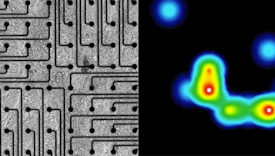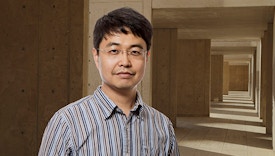Sung Han received his B.S. in genetic engineering from Kyungpook National University, South Korea. After receiving his M.S. in life sciences at Pohang University of Science and Technology (POSTECH), he spent seven years in biotech industry as a part of mandatory research program for military exemption in South Korea. After finishing his military obligation, he moved to the United States and completed his Ph.D. in neuroscience from the University of Washington. In William Catterall’s lab at the University of Washington, he showed that loss of SCN1A caused ASD-like behaviors in mice. He then did his postdoctoral work in Richard Palmiter’s lab at the same institution, where he identified a neural circuit that gates affective-motivational component of pain from spinal cord to the amygdala. He now has his research group at the Salk Institute for Biological Studies. His lab is interested in dissecting neural circuits that transmit aversive sensory signals to the brain.





